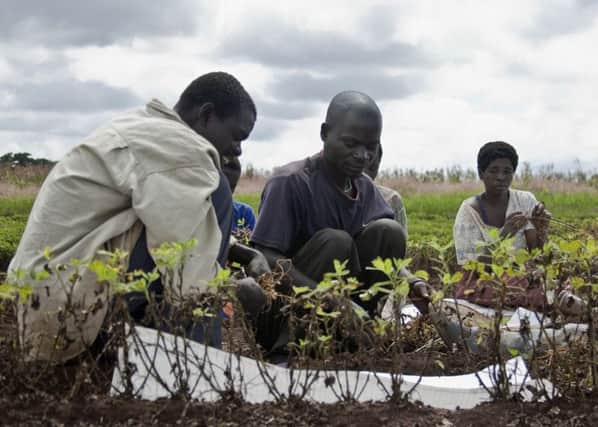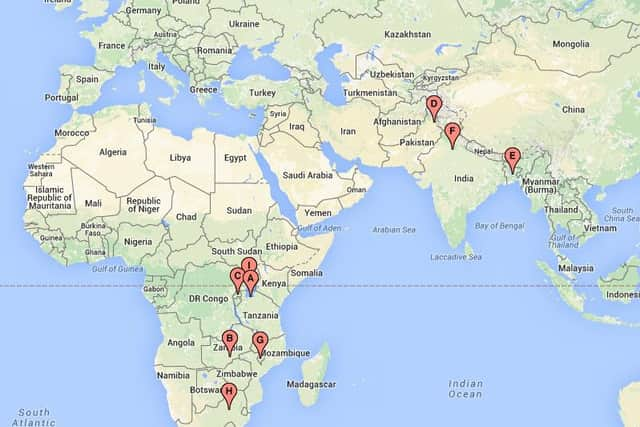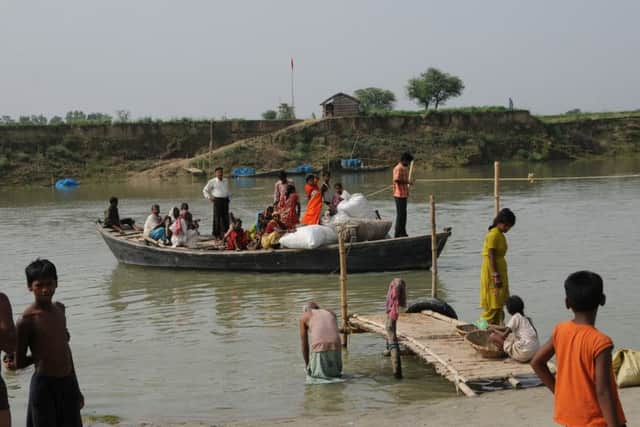Where does Scotland's foreign aid go?


In Scotland today, £9 million has been committed to seven countries in an effort to strengthen international bonds: Pakistan, Bangladesh, India, Rwanda, Tanzania, Zambia and Malawi.
The International Development Fund (IDF) helps Scotland to become “a good global citizen”, according the Scottish Government, allowing them to commit themselves to addressing challenges faced around the world.
Advertisement
Hide AdAdvertisement
Hide AdBuilding on the historical and contemporary relationships already existing between Scotland and the developing world, they assist in projects which are seen to achieve real and tangible outcomes on the ground.


Around £2.7million in funding goes to Malawi every year, with the government committed to supporting them due to their historical relationship dating back to 1859, with Scottish missionary David Livingstone, its status as a former British colony and its membership in the Commonwealth.
The IDF projects are in line with the four policy strands of the Scotland – Malawi Co-operation Agreement: civic governance and society, education, health, and sustainable economic development.
Projects include the Karonga Girls and Boys Empowerment Project, which aims to address the problems that are exacerbating the HIV/AIDS pandemic, as well as helping protect children from harmful practices, including forced marriage, forced employment and exploitation.
Another project has been the Edinburgh-Malawi Cancer Partnership, which was established in response to the growing numbers of patients diagnosed with cancer, creating the cancer unit in the Queen Elizabeth Central Hospital in Blantyre, which is the only one in Malawi.


In 2008, the Scottish government expended its reach to other countries in Sub Saharan Africa, with three projects in Rwanda, Zambia and Tanzania being funded for a total of £1.33m per year. The projects address what the government feel are the priority areas: food security, renewable energy, climate change and water.
The projects are food security for Tanzanian Farmers, which is run by Oxfam Scotland. Their aim is to help farmers in Tanzania to adapt to the effects of climate change.
The Kulima programme is run by the Scottish Catholic International Aid Fund is supporting small-scale farmers in Zambia.
Advertisement
Hide AdAdvertisement
Hide AdAnd a Tearfund Scotland project is working with communities in Rwanda, enabling them to address their issues relating to food security, water and sanitation and climate change mitigation.


The government decided to fund projects in South Asia due to the large community of former nationals living in Scotland, with £1.4m being aided per year.
In order to have maximum impact on areas of great need, the work was focused on Pakistan, Bangladesh and the Indian states of Bihar, Orissa and Madhya Pradesh. There is a wider range of projects taking place in these regions and include maternal health care, food production, clean water and the impacts of climate change.
Some of these include “Empowering communities for water, sanitation, hygiene and clean energy”, which aims to offer small loans to communities to install water and sanitation infrastructures in homes, as well as provide community classes on basic sanitation.
Another is “Improving education and health for deaf blind people in Bangladesh”, which hopes to improve education and health for 476 deaf blind children and youth in Bangladesh.


The government also funds a scholarship scheme to enable Pakistani women from disadvantaged backgrounds to study masters courses in education and environment related topics.
While these are the scheduled projects the Scottish government funds, it also provides emergency aid to humanitarian crises.
Syria has received £200,000 from the Disasters Emergency Committee (DEC), to help with the refugee crisis.
Advertisement
Hide AdAdvertisement
Hide AdOver the past six years the government has also donated to the Philippines, Democratic Republic of Congo, East Africa, Gaza, Haiti and Pakistan, to help with the emergencies faced in those countries.
Alyn Smith MEP said: “In Scotland we are taking our responsibility to support some of the poorest communities in the world very seriously. We cannot help everyone but we try to ensure the funding is reaching projects, often small NGOs, which have a real impact on people’s lives.
“The Scottish Government’s £9 million International Development Fund empowers people to fight global poverty through sustainable development, education and other life-changing programs and we can be proud of our Government and our country for setting a good example for others to follow.
“We want Scotland to be known around the world as a kind and open nation. We are members of a worldwide community stepping up to our commitments, especially when politically and economically times are tough.”
